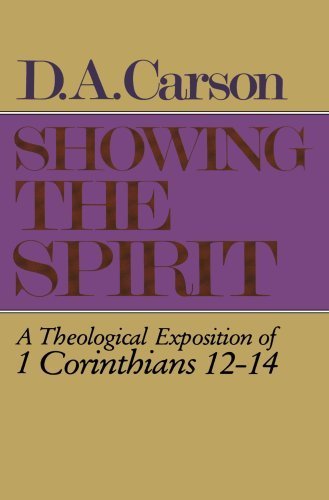You know we love the faithful Conference, don’t you? It was a great building to be in the past year (John Piper) and last year (Paul Washer) and we hope that our conference summaries have built it. he will be one of the speakers and the theme of the conference is based on his book “The Present God”.
Carson is one of the founders and directors of The Gospel Coalition, a new Testament research professor at Trinity Evangelical Divinity School, a master’s degree in theology from the Central Baptist Seminary in Toronto and a Doctorate in New Testament from the University of Cambridge. , England. Carson has written and edited more than 50 books.
- The faithful blog to prepare conference speakers.
- It publishes a weekly video in which Carson talks a little about each chapter of his book.
- As this is valuable content.
- We reissue it here for you.
- In the video below.
- Carson talks about one of them.
- From the points of the first chapter of his book (? The God who created all things?).
- Based on Genesis 1 😕 God is simply?.
- Showing that God.
- And not us.
- Is the ultimate standard and source of all things.
God is simply. The Bible does not begin with a great deal of evidence to prove the existence of God; It does not start with a bottom-up approach; nor does it start with any kind of adjacent or similar analogy. This has just begun: “In the beginning, God. ” Now, if human beings are the test for everything, it doesn’t make sense, because then we have the right to sit down and judge whether God is likely to exist, evaluate the evidence and find:?Probability that God exists one way or another And so we become the judges of God. But the God of the Bible is not like that. This has only just begun: “In the beginning, God. “He is — he is — he is not the object we evaluate, he is the Creator who created us. It changes all the dynamics.
This is related to some developments in Western philosophy that we must consider. Before the Renaissance, even at the beginning of the Renaissance, really until the time of the Reformation, most people in the Western world assumed that God exists and that He knows everything. Human beings exist, and because God knows all things, what we know must necessarily be a small byproduct of what he knows; in other words, all our knowledge, because he knows everything, must be a byproduct of what he knows. He knows exhaustively and perfectly, this means that all our knowledge, in this way of seeing reality, must come, in some way, from God revealing what he knows, of God revealing by nature, by His Spirit, by the Bible. just a hypothesis.
But with the emergence in the 16th century of what is now called Cartesian thought, under the influence of René Descartes and his disciples, the way of thinking about knowledge has changed and the axiom on which more and more people base their knowledge is what Descartes taught. others have already said something similar: “I think I exist. ” He thought it was a basis for knowledge. You cannot deny that you thought, even though you thought. The very fact that you thought you existed. looking for a foundation on which Christians, atheists, Muslims, laity, spirits all could agree on what was indisputable. And from this foundation and other approaches, he built a whole system of thought to try to convince people to become Roman Catholics.
But look how this axiom works: then I think I exist, twenty years ago no Christian would have said it very easily, because God thinks, God knows all things!If we exist, it is thanks to the power of God, knowledge, and even our existence, ultimately depend on it. But on this side of Cartesian thought, we start with “I”. I’ll start with me. And that puts me in a position where I begin to evaluate not only the world around me, but also morality, history, God, so that God simply becomes, at best, the inference of my study. It changes everything. The Bible doesn’t say that. God is simply.

